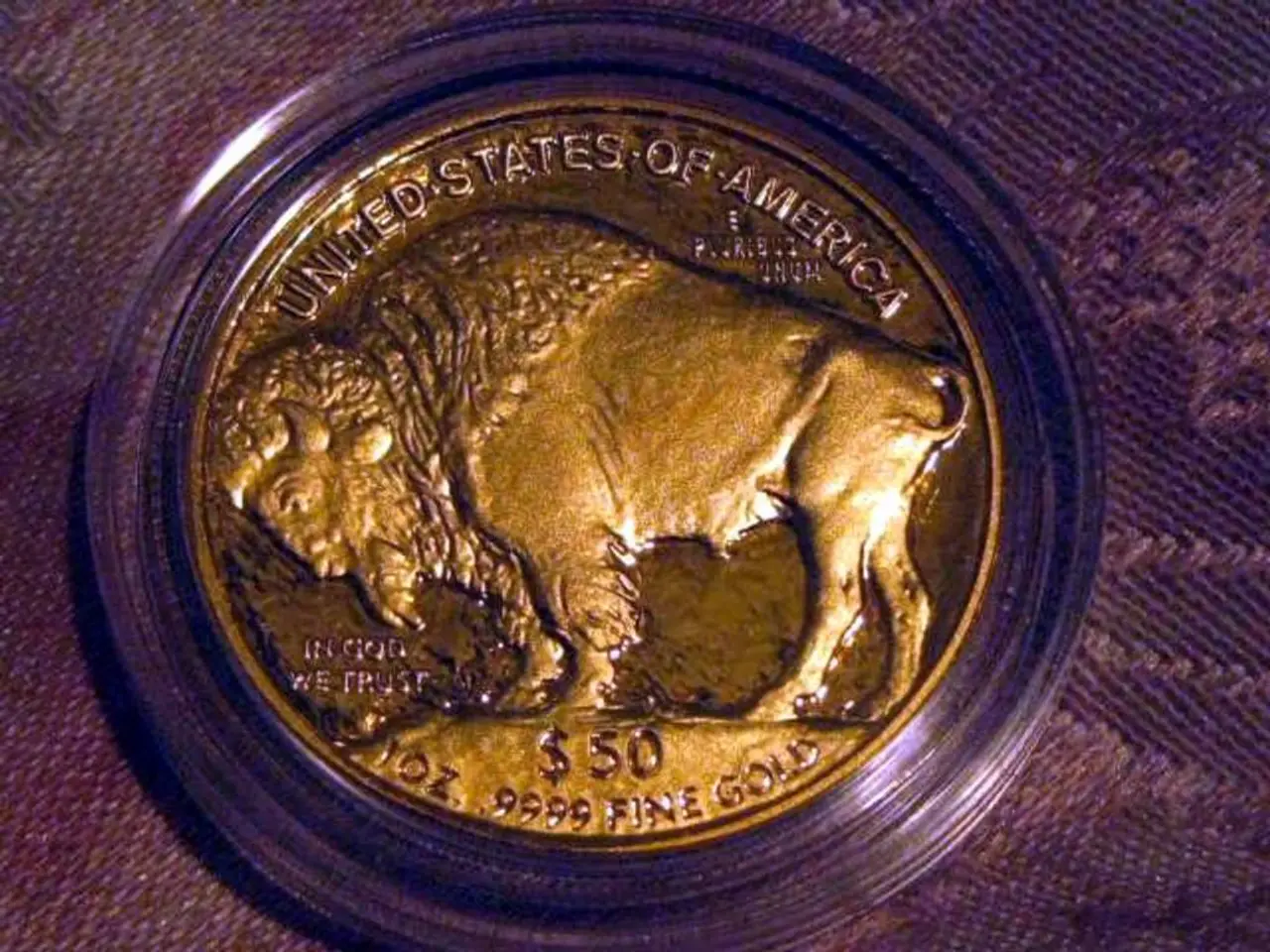Texas enacts Bitcoin Reservoir Legislation
In a significant stride towards digital currency adoption, several U.S. states are exploring the idea of investing in Bitcoin. This shift is evident as states like Texas, New Hampshire, and Arizona have already passed Bitcoin reserve laws, with Michigan actively pursuing a similar path.
Texas, the largest Bitcoin mining location in the U.S. and an economy on par with countries like the UK, has taken a bold step. Governor Greg Abbott, a Bitcoin-friendly leader, recently signed the Texas Strategic Bitcoin Reserve and Investment Act (SB 21) into law. The Lone Star State is set to establish a separate fund outside its budget for this purpose, with the extent of its Bitcoin investment yet to be clarified.
Meanwhile, Texas is not alone in this endeavour. New Hampshire was the first to take the plunge, with Governor Kelly Ayotte making a Bitcoin reserve law effective on May 5, 2019. The Granite State can now invest up to 5% of its state fund assets in cryptocurrencies or precious metals, provided the crypto assets have had an average market capitalization of over $500 billion in the past 24 months.
In another development, Arizona has created a framework for building a crypto reserve, but only through the seizure of "abandoned" digital assets. However, the Democratic governor vetoed bills that would have allowed active Bitcoin purchases twice.
On the other hand, the small state of Connecticut has taken a different approach. It recently passed a law explicitly prohibiting the establishment of a crypto reserve.
Elsewhere, US states like Michigan are actively advancing a bill to allow up to 10% of state funds in Bitcoin. Florida and several other states including Pennsylvania, Montana, Oklahoma, and the Dakotas have postponed, withdrawn, or are in legislative disputes over such laws.
It's important to note that the Editor-in-Chief at Blocktrainer.de, Tristan, has been actively covering Bitcoin-related news since 2020. For comprehensive information on Bitcoin-related laws in various states, one can refer to the website bitcoinlaws.io.
VP JD Vance has also spoken on the topic of a U.S. Bitcoin reserve, adding to the growing discourse on the subject. As of now, 20 Bitcoin reserve bills are still active in various states, with a total of 40 bills introduced in 26 states.
The future of Bitcoin in the U.S. seems promising, with states increasingly considering it as a viable investment option. As more states join the bandwagon, the landscape of digital currency adoption in the U.S. is set to undergo a significant transformation.




